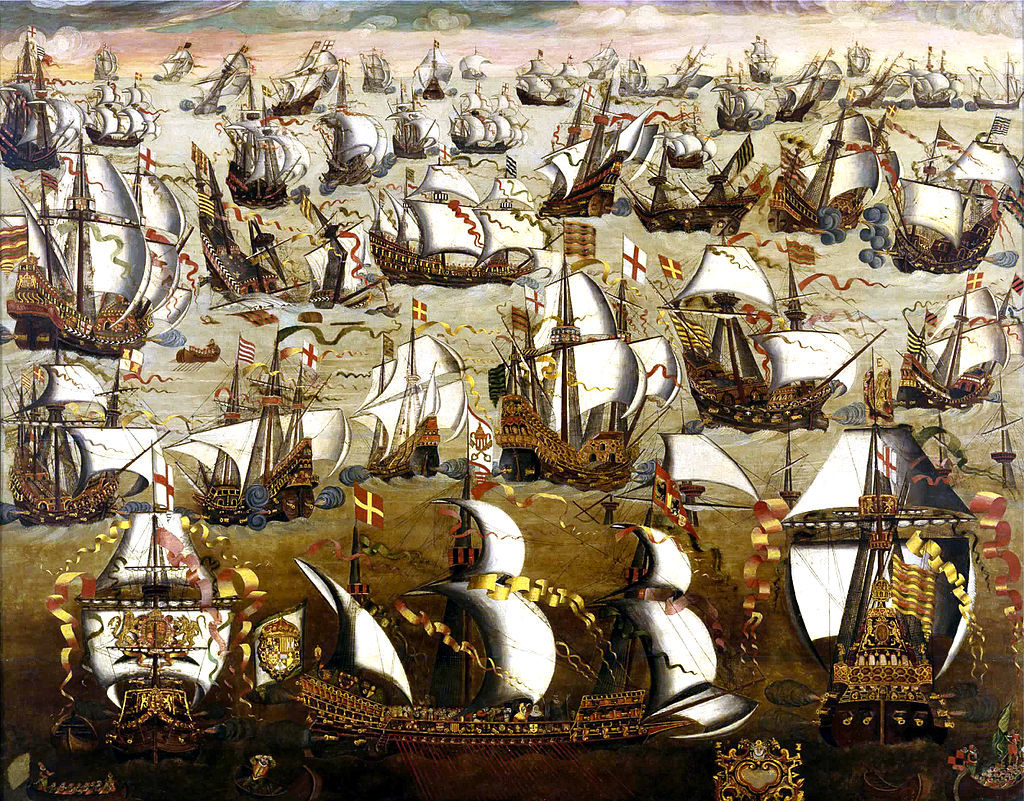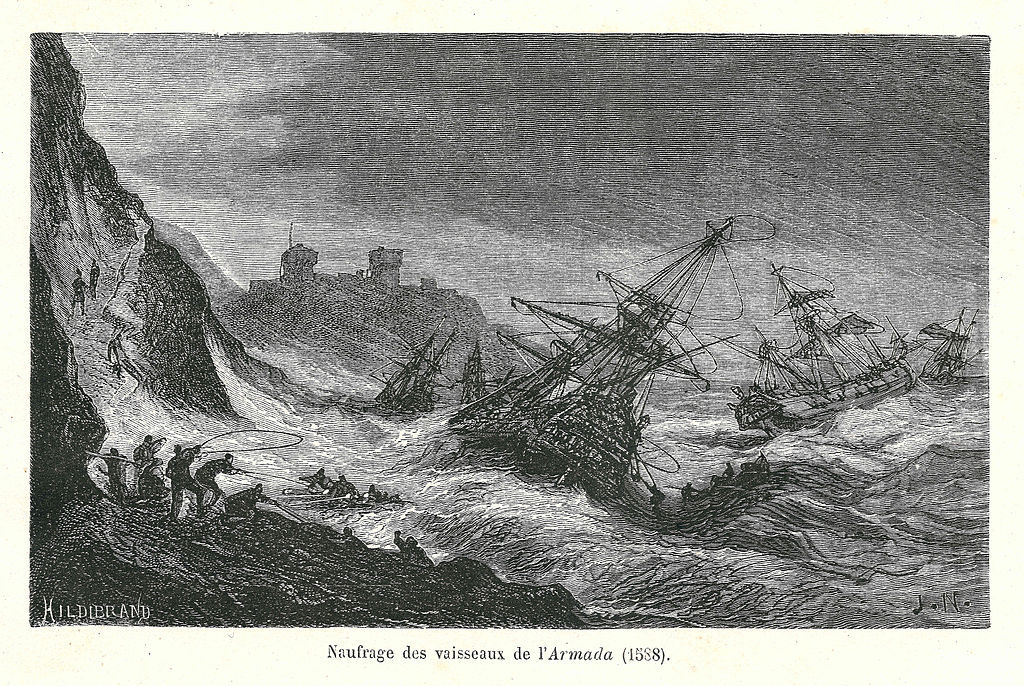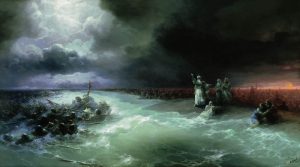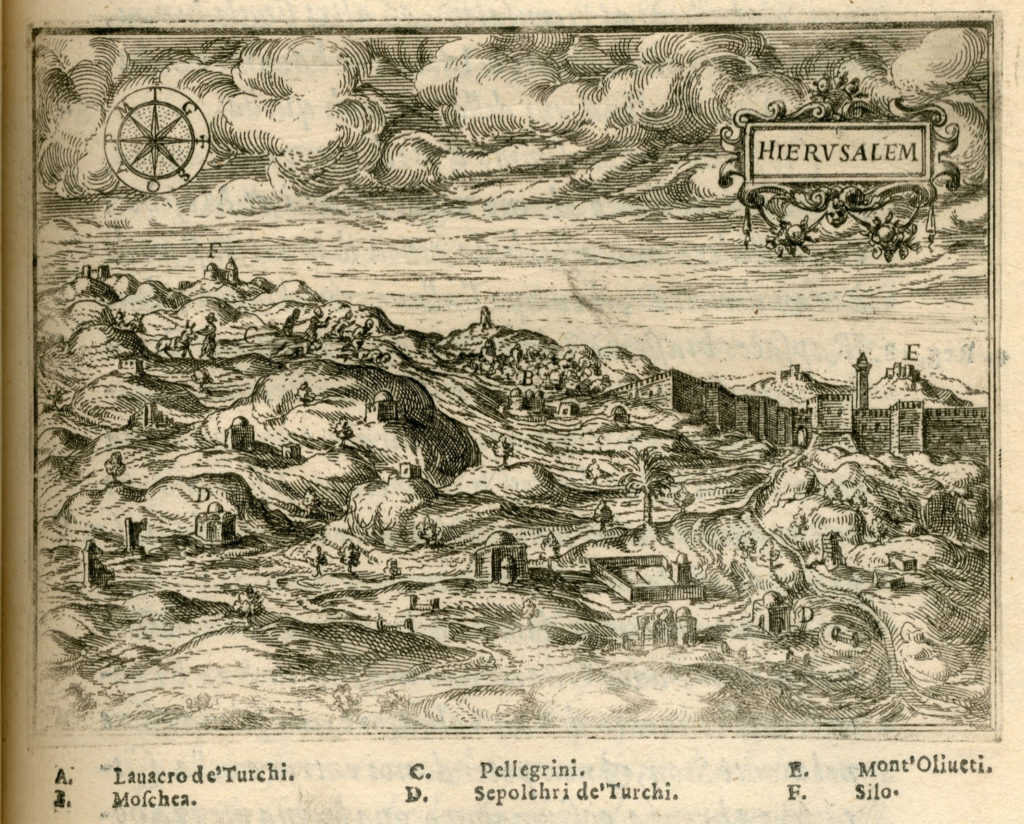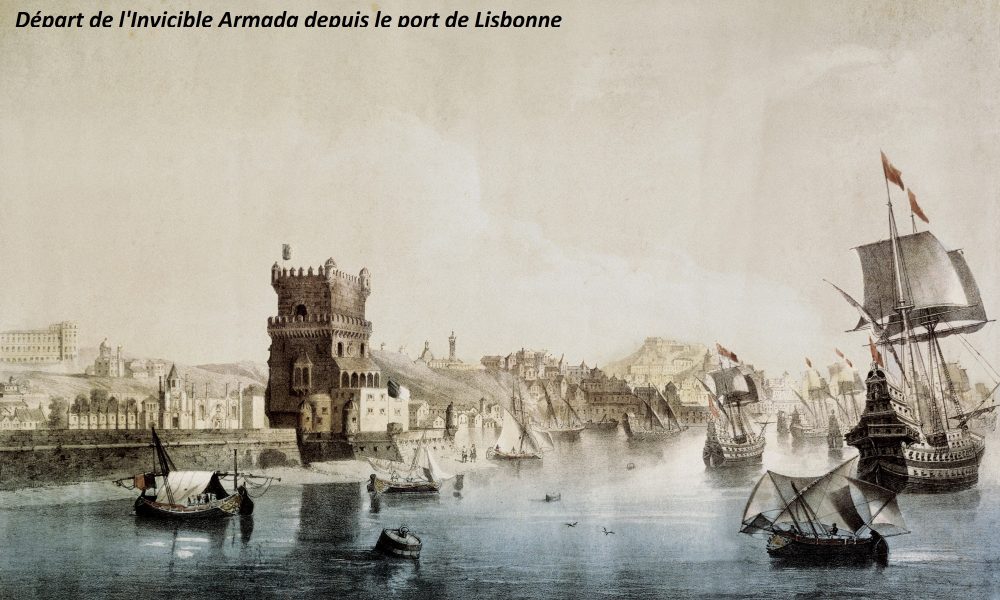
1570 AD to 1590 AD, Psalm 125: Spanish Armada
This site was first built in French (see www.147thgeneration.net). The English translation was mainly done using « google translation ». We have tried to correct the result of this translation to avoid interpretation errors. However, it is likely that there are unsatisfactory translations, do not hesitate to communicate them to us for correction.
(for that click on this paragraph)
Summary
This generation of the 1570s and 1580s.
According to our count, this generation is the 125th generation associated with Psalm 125. It is in this Psalm 125 that we therefore find an illustration of the facts of this generation.
The Reformation has the effect of undermining the hegemony of Rome over the European Nations. Spain and Portugal had shared the world under the papal blessing, this sharing no longer makes sense when this authority is no longer recognized. peak under the reign of Louis XIV, but the revocation of the Edict of Nantes and the war against Holland in 1672 will be all obstacles to its hegemony in Europe. A new revolution takes place in England.
Two new powers are emerging in northern Europe: the United Provinces controlled by William of Orange and England which defined and adopted Anglicanism in 1653, ruled by Queen Elizabeth I. After 1570, England’s relations with Spain deteriorated. Francis Drake robs a Spanish convoy with the Queen’s blessing.
King Philip II of Spain responds by assembling a fleet of 130 ships, the “Spanish Armada”, to subdue England. The Armada was defeated by both English sailors and the storm. This humiliation does not really erode Spanish domination of the Atlantic, but England has shown its power and can now set out to conquer the world.
This defeat of Spain and Portugal (the fleet left Lisbon) comes 80 years after a massacre of Jews in Lisbon. Likewise this generation began with Saint Barthelemy in 1472, also 80 years after the expulsion of the Jews from Spain in 1492. 80 years is the duration of 4 generations …
Protestantism shook the control of power by the Roman Church. In those 1570s this resulted in a readmission of Jews to the countries of the North, as was the case in England, the victor over the Iberian powers. This is also the case in Italy or Central Europe, Prague, Frankfurt or Vienna.
Talk
Sharing the world
At the beginning of the century, the Turks tried unsuccessfully to settle on the European continent, on Western Europe. After taking Belgrade in 1521, the failure of the siege of Vienna in 1529 and the Persian threat forced them to give up their dream of conquest in Western Europe.
The reform has the effect of undermining the hegemony of Rome over the European nations. Spain and Portugal had divided the world under the papal blessing, this sharing no longer makes sense when this authority is no longer recognized.
In fact, at the same time that the ancient world focused on the Mediterranean is stabilizing, new European powers turned towards the emerging Ocean, an early sign of the tilting of the control of the world of the powers of the South towards the new powers of the North. This is the case of the United Provinces.
In 1581, William of Orange now controls the new « Republic of the United Provinces » with as capital Amsterdam, new element of weight in the world chessboard that will be officially recognized by Spain in 1648.
Elisabeth 1st
England, another power in the making, is also detached from the Spanish tutelage:
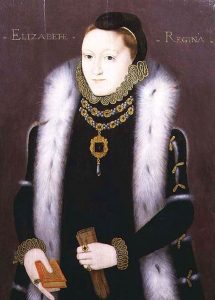
- Elizabeth 1st became [2] Queen in 1558. Her reign associated with the name of Shakespeare and the victory over the Invincible Armada, remains one of the most glorious in the history of England. (She succeeds Marie Tudor who fought the Protestantism adopted by her predecessor). […]
- Elizabeth naturally returns to Protestantism, but with great concern for moderation. (..) In 1563 are proclaimed the « Thirty Nine Articles of Religion », which constitute the true charter of Anglicanism. […] In 1570, Elizabeth (daughter of Anne Boleyn, bastard in the eyes of Catholics) is officially excommunicated by the pope, who accepts as only legitimate sovereign Mary Stuart, the Queen of Scotland. […]
Spanish Armada

- After 1570, England’s relations with Spain deteriorated. The fate of the English Catholics and Mary Stuart can not leave indifferent the « very Catholic » king, who also does not support English incursions into his empire. During his world tour of 1577-1580, the English navigator Francis Drake intercepted a Spanish convoy and seized his gold. As Elizabeth braves the complaints of the Spanish ambassador in arming Drake knight, Philip II makes the decision to eliminate these opponents. He assembled a fleet, considerable for the time, and baptized him the Invincible Armada himself.
- On May 20, 1588, 10300 sailors and 19000 soldiers piled on 130 buildings leave the port of Lisbon. The Spanish Armada, however, is defeated by both English sailors and the storm. Only 63 boats return to Spain. This humiliation does not really begin the Spanish domination of the Atlantic, but England has shown its power and can now conquer the world.
In England, the second half of the 16th century is marked by great demographic and economic dynamism.
80 years
This providential defeat of the Invincible Armada takes place about 80 years after the Lisbon Massacre:
- The royal policy [3] of forced integration of the Jews (Portuguese) met its main obstacle in the popular hatred against the neophytes, of which testifies the great number of lawsuits for offenses and insults. Verbal abuse quickly turned into physical attacks. This was the case in the spring of 1504, when a riot occurred in Lisbon, then in 1505 in Evora, when the crowd raised against the new Christians destroyed the old synagogue. A year later, in Lisbon, hatred swelled to the point of provoking a terrible pogrom.
- While the king and his officers were out of the city because of the plague, the municipal provost minister undertook, during the night of Passover (the new Christians were mostly Spanish Jews who had not made the choice of Christianity), a descent into several houses where new Christians celebrated their ancestral feast. In accordance with the immunity he had granted in 1497, the king ordered the release of the seventeen persons.
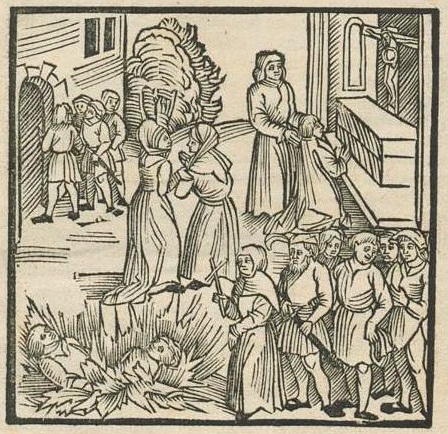
- Popular protests against this indulgence were recovered by the Dominicans. In their convent on Rossio Square, they began to preach against the « Jews » and staged a miracle: on the crucifix of their church, a piece of glass that represented the wound on the side of Christ began to emit bright bursts of light. On Sunday afternoon, April 19, 1506, while a crowd of faithful was prostrate, in a mystical delirium, in front of this resplendent crucifix, a new Christian entered the church had the imprudence to point out that there was a candle behind the glass.
- Accused of blasphemy, he was immediately lynched by the crowd. Two Dominicans then traveled the streets of Lisbon calling the good Christians to avenge this sacrilege. This crowd consisted of five hundred Dutch and French sailors, probably from ships belonging to rival merchants of the new Christians. To these sailors were joined the low people of Lisbon and many slaves. The crowd thwarted the few justice agents who had not left the city, and then began a savage killing of the neo-Christian population with looting and rape. The dead or living victims were dragged on great pyres; tax collector Mascarenhas, the main target of hatred, was hunted down and stunned by the crowd. At the end of three days, when at least two thousand new Christians had already lost their lives, the royal justice struggled with the city.
King Manuel had the leaders of the riot punished severely. In 1507, he even allowed the new Christians to leave the kingdom freely while being able to return to it. In 1512, he extended for 20 years the immunity decreed in 1497 of the new Christians against any investigation relating to their religious practices.
Although the history of the end of Iberian Judaism has been peppered with other deaths and other abuses and injustices, this massacre has a peculiarity. The expulsion from Spain in 1492 left the Jews free to convert or leave the country. Many then fled to Portugal. But in Portugal these same Jews who had preferred the exile of their homeland and ancestral to the conversion were trapped in 1497, the king imposing the conversion without possibility of a new exile.
This conversion was nevertheless accompanied by a freedom of worship of fact, since an immunity on the religious practice was granted to them for twenty years, that is in theory until 1512. But this massacre, even if it is not the initiative of the royal power, is his responsibility because it is he who trapped the Spanish Jews refugees in Portugal, massacred because of this trap a few years later.
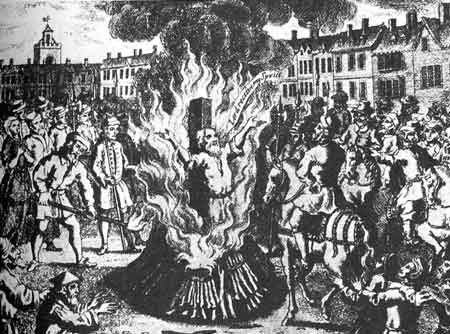
This responsibility must have been felt by the King of Portugal if we judge his reaction to the massacre. Even if the royal reaction is salutary, in 1531 before the expiry of this new period, King Joao III decides to establish the Inquisition in Portugal to fight the Judaism of the new Christians, destroying the will of atonement of his predecessor.
In 1497, Portugal had trapped the Spanish Jews in order to keep them on its soil hoping that they would help Portugal in its economic expansion. And so it is natural that 80 years after the Lisbon massacre the Invincible Armada part of Lisbon found in addition to the English the divine wrath that sent the Storm, air and water, on the Spanish boats.
In the previous generation, the psalmist evoked the divine presence that spared the Jewish people from « rushing waters » (the water of baptism), to this generation the divine presence passed other « rushing waters » over those who wanted to overwhelm the people of Israel: the Portuguese and the Spaniards.
This defeat will pave the way for England and other emerging dynasties of northern Europe in the conquest of the world at the expense of Iberian interests, Portugal and Spain combined. If Portugal is already on the downward slope to this generation, the effects of this new competition will soon push Spain to exclude itself from nations dominating the world in the next generations.
Before this defeat, Portugal had just passed under the control of Spain. Thus when Spain sends his Invincible Armada to England, it is in fact the two Iberian kingdoms that are associated: Spain and Portugal. These two countries which, four generations ago, had joined together to remove the Jewish presence from the Iberian Peninsula, which was more than a millennium old, are now linked to the present generation to suffer divine wrath. Symbolically, the Invincible Armada left Lisbon 80 years after the massacre in the same city of Jews trapped in a forced conversion.
Thus in the fourth generation, like the Egyptians on leaving Egypt, the Portuguese and the Spanish are punished by air and water. The Lisbon Massacre took place on Easter Day celebrating the exodus from Egypt, four generations later, they suffer the same fate as the Egyptian army, swallowed up by the waters.
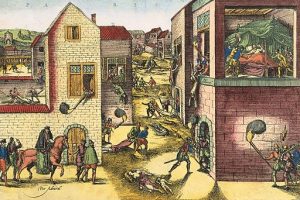
This generation is also marked by St. Bartholomew on August 24, 1572. While completing the reconquest, Spain had decided the expulsion of Jews in 1492 in the hope of unifying Spain and Europe behind the unified banner of Catholicism, four generations later, exactly 80 years later, this unification is shattering.
The readmission of Jews to Europe
The Christian world will no longer be unified.
In 1492, the Jews had been the victims of this desire for unification.
Four generations later, they can find their place in this new Christian world, not in the Iberian Peninsula, fossilized by this desire for unification and purity, but in the rest of Europe. Also in the new world especially in North America whose first attempts at installation are made to this generation, by Protestants who will try to find their salvation outside a Europe they consider too steeped in Catholicism.
Thus this generation is a new starting point for the Jews who refused to submit and succumb to the Catholic pressure of the Iberian powers:
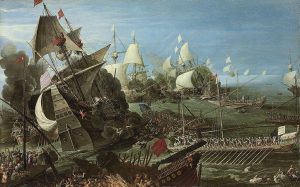
- While [6] at Lepanto was consumed the armed clash between East and West, Christian Europe was in the throes of such great changes that many historians considered the 1570s a symbolic date. The hard struggle between Catholics and Protestants had transformed the political philosophy of the rulers and the powerful, and the Roman Church could no longer exercise exclusive control of power.
- An economically more flexible and livelier society gave birth to new values: reason of state, for example, slipped into the embryo of modern nations, drastically opposed decadent political, cultural and religious models. Some intellectuals, Montaigne, Bacon, Bodin, Lipse, interpreted this spiritual change (perhaps not as instant as certain historians would have it, but certainly drastic and rapid) and they gave philosophical and cultural expression to this radical skepticism. a conflict of ambivalent values. As for the economic front, the interest of the state prevailed over the old religious demands and increased the collective and individual pressure towards well-being. All this could not be without fallout on the destinies of the Jews, so sensitive in spite of themselves to any political, economic, social and religious fluctuation. This profound upheaval of points of view has led some historians to dare to consider 1570 as the beginning of modern Jewish history, since these years were precisely those of the beginning of Jewish readmission in the West and Central Europe: a diffuse and simultaneous change, in Italy, Germany, France, the Netherlands, which took place in a wider transformation of the whole European mentality. After bitter religious struggles, a fundamental stability took shape: the Edict of Nantes (1598) recognized the freedom of worship of the Calvinists. In the Netherlands, Catholics and Protestants shared their areas of influence.
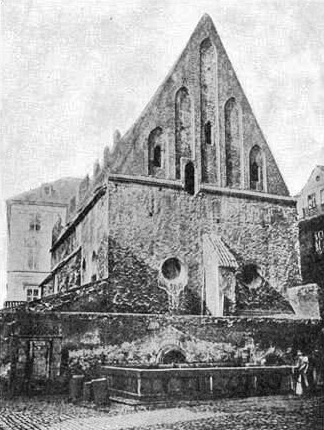
- In some countries, it was not only a return: in a spectacular gesture, Maximilian II (1564-1576) and his entire court visited the Judenstadt in Prague in 1571. His successor Rodolphe II deepened in 1577 the policy of his father, by a charter which specified conditions so favorable that in 1600, the community of Prague counted three thousand people came partly from the east, thus reversing the trend of great flows western sixteenth century. […]
- Deep changes also affected the Jewish population: the pawnshop, its old specialty, quickly lost its importance, in favor of the commercial and commercial intermediary. New figures appeared, like the Hofjuden, the court Jews, trusted men of the feudatories. The return was more noticeable in Germany and especially in Frankfurt, Austria in Vienna, where, despite some outbreaks and contradictions, the anti-Jewish tensions fell. In Italy, after the pontifical sectarianism of the fifties, Urbino, Ancona, Rome, Venice, and especially Mantua favored, with some time lags, the installation and reinforcement of Jewish kernels. Cross currents and heterogeneous mixed the survivors of European Judaism Sephardic and Ashkenazi, beyond their traditional divisions.
- The century thus ends with a process of readmission and reintegration that touches practically the whole of Europe: new Jewish groups were grafted in full light on the clandestine communities of Marranos. The great tumult which had afflicted Central Europe seemed to calm down. A new convulsive page of Jewish history seemed to be turned.
Thus, despite the attacks suffered, the Jews have not staggered and have kept their faith intact, this is what the beginning of the psalm of this generation expresses:

- A song of ascents. Those who trust in the Lord are like Mount Zion, which will not falter but will abide forever.
This unexpected resurgence of the Jewish people is accompanied by an increased place of the promised land with special attention to Jerusalem:
- In [7] the eighties of the (sixteenth) century, the highest rabbinical leaders of the diaspora transport their penates and their court to Jerusalem; among them, Rabbi Chaim Vital Calabrese, principal disciple of Isaac Luria Ashkenazi, and Rabbi Bezalel Ashkenazi, both disciples of the supreme authority of the generation, David ben Solomon Ibn Avi Zimra, who abandoned the opulent community of Cairo for to occupy the major pulpit of Jerusalem in 1587. The route of Solomon ben Joseph Sirillo would provide a model of the hierochemical rabbi in the sixteenth century. Coronation of a career, the earthly Jerusalem exhales the perfumes of the heavenly Jerusalem. Hundreds of rabbis live and teach in Jerusalem in agreement or misunderstanding.
Although the exile is not over, Jerusalem has already regained a prominent place for the Jews of this generation.
Jews can continue to live among nations which, as we have seen many times, are symbolically associated with mountains, especially during the exile of the Jewish people. Thus the continuation of the Psalm evokes this new phase of exile within nations, during which Jews will be aspired to modernity without denying their faith.
This is what the continuation of the psalm expresses:

- Jerusalem has mountains around it, and the Lord is around His people from now and to eternity.
Thus the psalmist can conclude the psalm of this generation by reaffirming the unshakeable faith of the Jewish people towards their God through the concluded covenant that the end of exile can not break:
- For the rod of wickedness will not rest on the lot of the righteous, because the righteous do not stretch out their hands into wrongdoing.
- Be good, O Lord, to the good and to the upright in their hearts.
- And those who turn their crooked ways-may the Lord lead them away with the workers of iniquity, [and may there be] peace on Israel.

[1] (Preface by) Jean Delumeau: « A history of the world in modern times ». Chapter: « The Great European Power, 1555-1600 ». (French: « Une histoire du monde aux temps modernes ». Chapitre : « Les grandes puissance européennes, 1555-1600 ». (p. 98,99) )
[2] (Preface by) Jean Delumeau: « A history of the world in modern times ». Chapter: « The Great European Power, 1555-1600 ». (French: « Une histoire du monde aux temps modernes ». Chapitre : « Les grandes puissance européennes, 1555-1600 ». (p. 110 à 117) )
[3] Carsten L. Wilke: « History of Portuguese Jews ». (French: « Histoire des Juifs portugais ». (p. 91,92) )
[4] (Preface by) Jean Delumeau: « A history of the world in modern times ». Chapter: « The Great European Power, 1555-1600 ». (French: « Une histoire du monde aux temps modernes ». Chapitre : « Les grandes puissance européennes, 1555-1600 ». (p. 107 à 110) ).
[5] Henry Méchoulan: « The Jews of silence in the Spanish Golden Age ». (French: « Les Juifs du silence au siècle d’or espagnol ». (p.155) )
[6] Riccardo Calimani: « The Jewish Wandering ». Chapter XV: The era of the ghettos (French: « L’Errance juive ». Chapitre XV : « L’ère des ghettos ». (p. 264-265) )
[7] Gérard Nahon: « The holy land at the time of Kabbalists ». (French: « La terre sainte au temps des Kabbalistes ». (p. 99,100) )

